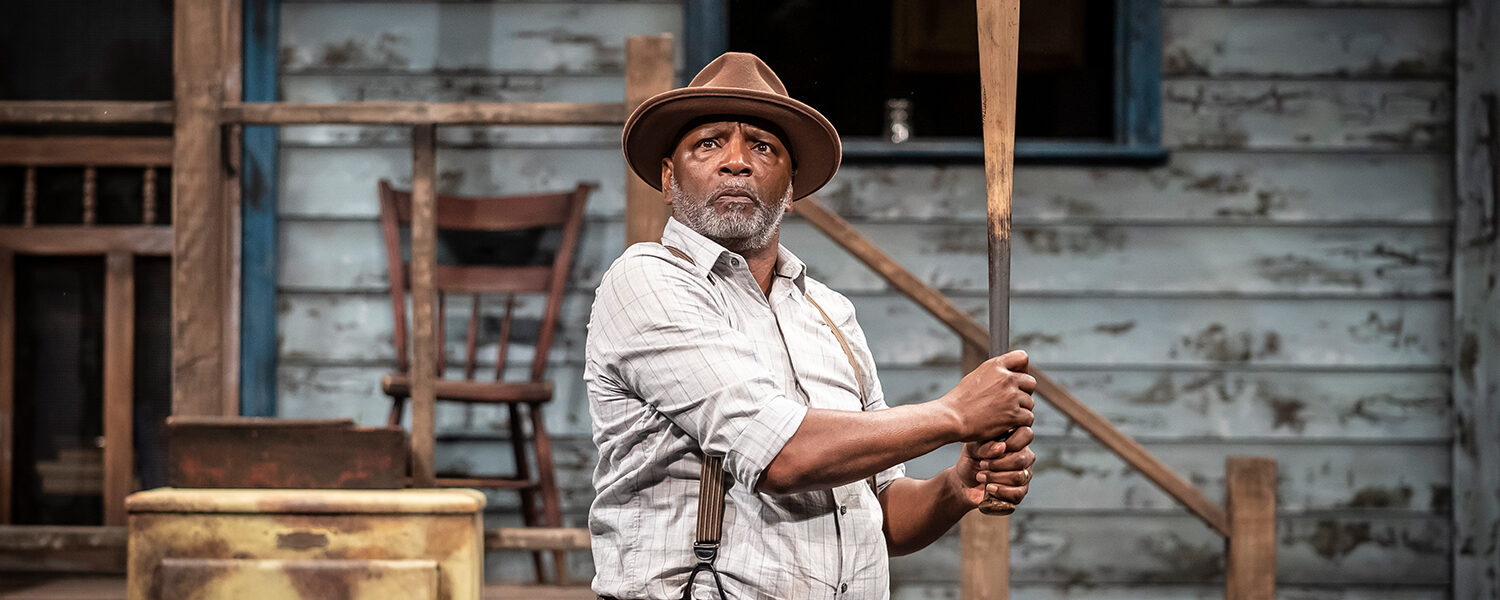Contact Us
American Players Theatre
5950 Golf Course Road
P.O. Box 819
Spring Green, WI 53588
(Map)
Box Office: 608-588-2361
Administration: 608-588-7401
Fax: 608-588-7085
American Players Theatre
5950 Golf Course Road
P.O. Box 819
Spring Green, WI 53588
(Map)
Box Office: 608-588-2361
Administration: 608-588-7401
Fax: 608-588-7085

By Lindsay Christians, The Cap Times, August 12, 2019
You gotta take the crookeds with the straights.
So says Troy Maxson, frustrated baseball player, garbage collector, larger-than-life father and ex-con. Troy believes that good times don’t last, but maybe bad times don’t either.
As a black man in 1950s Pittsburgh, “you born with two strikes on you before you come to the plate.” Troy keeps swinging.
The large-scale inequities that come from being black in America surround a little backyard in “Fences,” a powerful domestic drama and the third in August Wilson’s “century cycle” of plays.
This summer, director Ron OJ Parson returns to American Players Theatre to lead the company’s first Wilson play, a 1987 Pulitzer Prize-winning, 20th century classic. It’s the first production in the Hill Theatre to have an all-black cast and it runs in repertory through Sept. 28.
Sound designer Andre Pluess brings the audience into Troy's backyard to the sounds of early Motown. It’s a gift to see “Fences” outside, where the play lives, on a set by Shaun Motley that suggests architecture and the nearness of neighbors with warmly glowing windows and the sketch of rooftops. The intimacy feels too small for a man like Troy.
David Alan Anderson, an empathetic actor and a master of Wilson’s poetry, embodies Troy with a loose gait and a big laugh. Troy draws people to him — his best friend Bono (Bryant Louis Bentley, quiet and thoughtful), near-idolizes him. His wife Rose, played by Karen Aldridge, keeps a pot of chicken on the stove and biscuits in the oven.
Troy is as ambitious as Willy Loman, a philosopher and storyteller like Tevye the milkman. Where Tevye had the “good book,” Wilson’s outsized protagonist has baseball. Death is “a fastball on the outside corner.” Buying drinks for an attractive woman is long-married Troy’s attempt to “steal second.”
When “Fences” opens, Troy is restless. He takes a risk at work and goes to the union about why only whites drive the trucks while black men haul. His disabled brother Gabriel (Gavin Lawrence) has just moved out, taking with him his veteran’s pension, though he still relies on Troy and Rose for care.
Read the full review here!